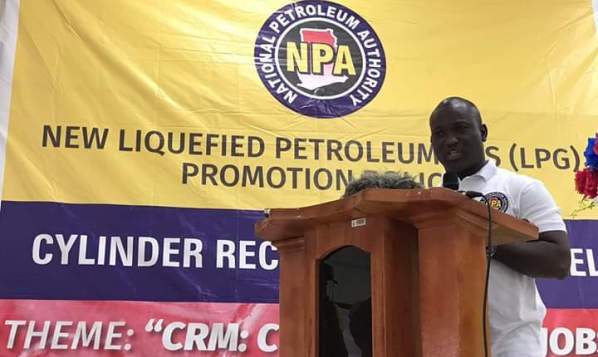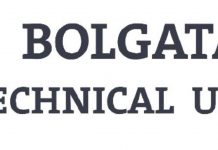The National Petroleum Authority on Tuesday held a stakeholders engagement in Bolgatanga in the Upper East Region to interact with the public and consumers of Liquefied Petroleum Gas ahead of the implementation of the Cylinder Recirculation Model under the National Liquefied Petroleum Gas Policy.
The goal of the policy according to the NPA is to ensure that not less than 50 percent of Ghanaians have access to safe, clean and environmentally friendly LPG by 2030.
Chief Executive Officer (CEO) of the NPA Mr Alhassan Tampuli in an address said the policy will among other objectives develop a market-driven structure to ensure safety, increased access and adoption of LPG and also ensure the existence of robust and standard Health, Safety and Environmental practices in the production, marketing and consumption of LPG.
Highlighting the need for the implementation of the new model to ensure safe use of LPG, Mr Tampuli recounted incidents in the country on which bases cabinet directed the implementation of the policy.
“Over the years, the Ghana Petroleum Downstream Industry has witnessed a number of unfortunate incidents as a result of the misuse and sometimes negligence and inappropriate handling of the petroleum product especially LPG. We cannot forget the unfortunate incident of June 3 in the year 2015 in which a number of lives were lost, neither can we forget the infamous atomic junction has explosion which shook the country in the last quarter of 2017. We have experienced other avoidable incidents which nearly cost lives in Kumasi, Accra, Takoradi and different parts of the country.”
He further disclosed that only 4 percent of the population in the north of Ghana use LPG, a situation he said reveals the high use of wood fuel which has environmental implications.
This he said would be improved by the new Cylinder Recirculation Model.
Under the new model, an estimated 4,500 new jobs would be created under the actors of the new value chain and door to door service.
The engagement brought together actors in the Petroleum Downstream Industry, drivers, Women Groups and Associations and members of the general public.
When fully implemented, consumers would be supplied with filled cylinders at specialized retail outlets called exchange points.





![[VIDEO]: NDC nicknames Adongo their economic wizkid ‘Bawumia’](https://static.africa-press.net/ghana/2019/09/Isaac-Adongo-1-218x150.jpg)